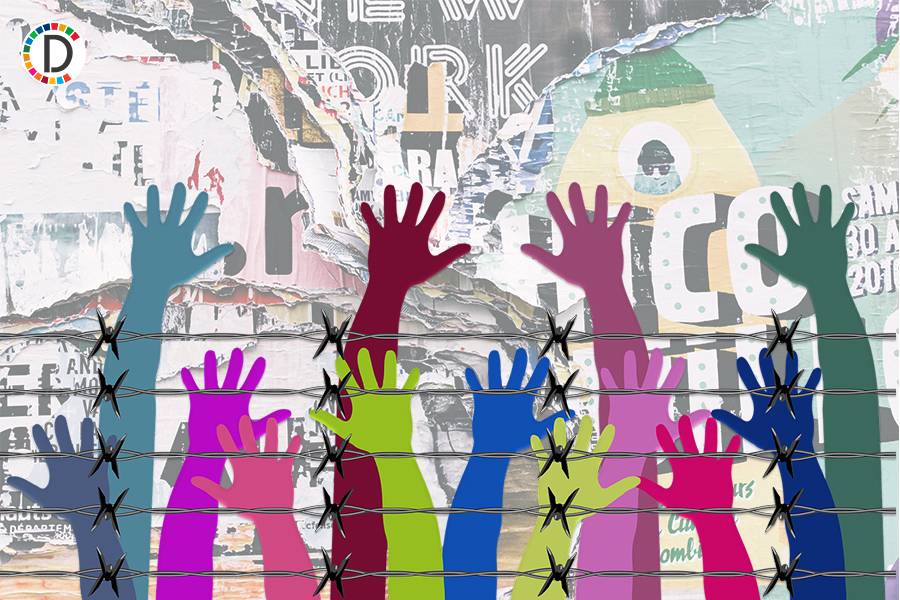Putin likely to channel Stalingrad victory at pivotal time in Ukraine war
Ukraine - which itself suffered devastation at the hands of Hitler's forces and was then part of the Soviet Union - rejects those parallels and accuses Russia of a war of imperial conquest. The focal point for commemorating the World War Two victory is a memorial complex to the city’s defenders, located on a hill overlooking the River Volga which is dominated by a hulking statue of a woman wielding a giant sword called The Motherland Calls.

President Vladimir Putin was expected to use a commemoration on Thursday of the Soviet victory over Nazi Germany in Stalingrad 80 years ago to rally Russians around his military campaign in Ukraine. He was due to hold a meeting with local patriotic and youth groups during the evening in Volgograd, the city in southern Russia that until 1961 was called Stalingrad.
In 1942-43 it was the location of the bloodiest battle of World War Two when the Soviet Red Army, at a cost of over 1 million casualties, broke the back of German invasion forces. Putin laid flowers at the grave of the Soviet marshal who oversaw the defence of Stalingrad and visited the city's main memorial complex, where he held a minute's silence in honour of those who died during the battle.
The commemoration came as Moscow tries to step up its military campaign in Ukraine in the face of fierce resistance. Thousands of people lined Volgograd's streets to watch a victory parade as planes flew overhead and modern and World War Two-era tanks and armoured vehicles rolled past
Some of the modern vehicles had the letter 'V' painted on them, a symbol used by Russia's forces in Ukraine. Irina Zolotoreva, a 61-one-year old resident who said her relatives had fought at Stalingrad, saw a parallel with Ukraine.
"Our country is fighting for justice, for freedom. We got victory in 1942 and that's an example for today's generation. I think we'll win again now whatever happens." Paying tribute to those who delivered the victory at Stalingrad, widely recognised as a turning point in the war, is sacred in Russia where the authorities have long cast it as an enduring symbol of selfless patriotism and heroic resilience.
Since Putin sent tens of thousands of troops into Ukraine in February last year, Russian officials have drawn parallels with World War Two and the struggle against the Nazis. Ukraine - which itself suffered devastation at the hands of Hitler's forces and was then part of the Soviet Union - rejects those parallels and accuses Russia of a war of imperial conquest.
The focal point for commemorating the World War Two victory is a memorial complex to the city's defenders, located on a hill overlooking the River Volga which is dominated by a hulking statue of a woman wielding a giant sword called The Motherland Calls. The 1942-43 battle was devastating and reduced the city which bore Josef Stalin's name to rubble, while claiming an estimated 2 million casualties.
A new bust of Stalin was erected in Volgograd on Wednesday along with two others, of Soviet commanders Georgy Zhukov and Alexander Vasilyevsky. The industrial city of Tsaritsyn was renamed in honour of Stalin in 1925, but became Volgograd in 1961, eight years after his death, when his legacy fell out of favour.
Despite Stalin's record of presiding over a famine that killed millions and political repression that killed hundreds of thousands, Russian politicians and school text books have in recent years stressed his role as a successful wartime leader who turned the Soviet Union into a superpower.
(This story has not been edited by Devdiscourse staff and is auto-generated from a syndicated feed.)
ALSO READ
Russia says Moscow has no military or geopolitical interest in attacking NATO states, says TASS
Kremlin, commenting on Blinken lobbying China on Russia, says Moscow and Beijing ties to continue
Moscow may seize private US assets in Russia if US seizes frozen reserves, says Putin ally
Kremlin, commenting on Blinken lobbying China on Russia, says Moscow and Beijing ties to continue
A 98-year-old Ukraine woman walks 10 km under shelling to escape Russians










